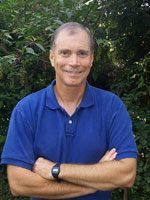
We will begin classl after Labor Day. Every chapter (web page) of the course is followed by a written assignment. The assignments need to be emailed to me by the 8:00 am on the following Mondays except the week after Thanksgiving it will be Tuesday.
|
|||||||||||||||||||||
When it is set up, the class discussions will take place on a threaded, Discussion Board found on our BlackBoard site under Tools. I will set up a new forum each week for our discussions. Each person will post at least two substantive questions or comments towards the discussion each week, one comment is due by Thursday at 8:00 am and the second by the following Monday at 8:00 am, failure to do so will cost points off your term average. Students should try and answer each others questions. I will monitor discussions and participate as I needed.
There will be an open-book, take-home midterm and final. You can use the web (or other) material to answer the essay questions, but you must work by yourself. The midterm will be posted at noon (covering material through 1 -12) and the final (not comprehensive) will be posted at noon (covering material through13 -23) , both will be due 24 hours later, plan your schedule accordingly.
Note: it might be tempting to not keep up with your studying of the course material, since the tests are open book, however, such a strategy will result in a poor grade because there is no way to learn and synthesize all the rather complex information in the 24 hours the test is offered...be prepared.
There will be no required text for this course. I require, however, that you read and understand Southern Regional Aquaculture Center (SRAC) Fact sheets 451, 452, and 453 by the midterm and 454 and 455 by the final (http://srac.tamu.edu/). Feel free to post discussion questions on this material. For students that want a book to consult , I recommend Timmons et al. Recirculating Aquaculture Systems (ISBN: 0-9712646-0-0). I think that a bookstore has a few or they can be ordered. It is heavy on the engineering, but a good resource.
Students taking this course for graduate credit will also be required to complete a term project. This project requires that each of you design a recirculation system. You will first define your objectives in terms of species to be grown and pounds per year to be produced. You will then research and design your system. You will want to be as specific and realistic as possible, though I will not ask that you do mass balance (engineering) calculations to defend your specifications. Your report should be submitted electronically by email (or you may wish to post it as a web site). Your report should include: 1) objectives, 2) system overview including where you are siting the facility and why, 3) scale drawing of system, 4) list of system components with sources and prices, 5) projected operating specifications including total volume, flow rate, pounds of fish supported, loading rate (pounds of fish per gallon), and based on this loading, feeding rate, nitrogen produced, solids produced, and oxygen required, 5) budget including all expenses and income (see SRAC 456). I will be looking for detail!
Points will be awarded as follows: each assignment 5 (maximum, 5 x 23 = 115), midterm exam 100, term paper 100 (grads only), final exam 100. Total possible points: 115 + 100 + (100) + 100 = (415 grads) 315 undergrads. Two points will be subtracted for failure to adequately contribute to weekly discussions. Course grades will be assigned as follows: A = 90% (390 points), B+ = 85% (370), B = 85% (350), etc.
 |
 |
My name is Richard Strange. I have been a fisheries professor in the Department of Forestry, Wildlife and Fisheries at the University of Tennessee for 25 years. I grew up in Dallas where my love of fish began when my aunt took me fishing at age three. I had the opportunity to study fisheries at Colorado State, Virginia Tech and Oregon State before coming to Tennessee. My teaching and research interests have included many aspects of fishes. Beginning about 8 years ago I began to pursue recirculation aquaculture. An even more recent interest is computer-based distance education which includes this course. One aspect of this course is streaming video, try it out with the link to the right.
Some Tech Notes: This web site is designed to be viewed at screen resolutions of 1024x768 or higher, though it is usable at lower resolutions To view the animations you will need the free Flash plug-in from Adobe, you will be prompted for a download, if you don't have it, it is very quick. The movies are designed to be viewed with the Real media player (though other media players will probably work). It is available for free from Real, the free version is sort of hidden on their web site, keep digging it is there! To view the pop-up windows you cannot have a pop-up blocker enabled, obviously, also you must your browser security set to allow Active-X controls. If you do have a tech problem, let me know, and I will try and assist.
Acknowledgements: I want to thank Aquatic Ecosystems for allowing the use of their catalog photos, they are an excellent source of recirculation aquaculture equipment and supplies and offer advice, too. I also want to acknowledge two individuals from whom I learned much about recirculation systems Thomas Lasordo of North Carolina State and Michael Timmons of Cornell. Losordo has taught an excellent short course through N.C. State Extension and Timmons has authored the book I have suggested for this course, Recirculating Aquaculture Systems (ISBN 0-9712646-0-0). This media was created exclusively with the use of Adobe products.
| Copyright 2004 Richard J. Strange |